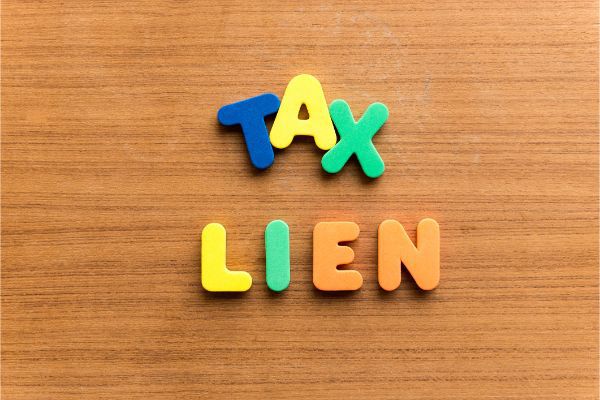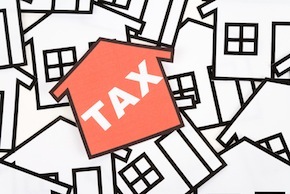All Categories
Featured
Table of Contents
It is necessary to keep in mind that not every state offers investors the possibility to join a tax obligation lien sale. In some states, a residential property with delinquent tax obligations will go right to the tax obligation sale procedure. In the states that do supply real estate capitalists the opportunity to buy tax obligation liens, around 33 percent of the $14 billion in unpaid tax obligations were offered off (in 2017, as an example).
If you have an interest in the tax lien foreclosure process, you should contact an attorney so you understand and consider the threats of this kind of financial investment.
How Tax Lien Investing Works
Tax obligation lien sales are one way that cities and regions attempt to recoup some of the public bucks they've spent keeping these properties deserted by private proprietors. But, as we'll discuss in this article,. Once real estate tax are considered overdue, neighborhood federal governments typically focus on supplying notice of misbehavior and trying to collect the overdue quantities from the owner.
This procedure commonly takes years. If a proprietor has actually strolled away and is resistant to pay taxes or maintain the home, the city must invest tax bucks to keep the home. These costsboarding up the building, trimming overgrown lawn and weeds, reacting to fire and police calls on the residential or commercial property, and moreadd up.
Proprietors who have actually dropped on difficult times absolutely require every initiative to keep them out of misbehavior and in their homes. tax lien investing florida. Typically, if the home is vacant and tatty, we should think the owner has chosen to desert their passion in the residential property and that they are "resistant" to pay (though scenarios earlier in the procedure may have required their hand).

Take, for example, a single-family home where the proprietor has time out of mind left. For several years the city government has had to tip in and eliminate rubbish unloaded in the backyard, board up the doors and windows, and react to calls concerning illicit activity on the building. All these services cost the city government taxpayer bucks.
In many states, those prices can be collected in the exact same manner as the unsettled tax obligations, but not in all. (Something that Neighborhood Development strongly advocates for.) Eventually, the complete financial obligation comes to be higher than what the building might sell for. In a tax obligation lien sale (or tax certificate sale) the city government usually holds a public auction where the winning prospective buyer agrees to pay the most money for the right to apply the tax lien, starting with a minimum proposal of a minimum of the taxes possessed, plus relevant rate of interest, costs, and costs.
When a government offers the tax lien they are normally offering to a personal purchaser the neighborhood government's authority to accumulate the debt in exchange for in advance repayment of the taxes owed. The buyer's purchase usually consists of the capacity to gain future interest, as well as recoup related fees and expenses sustained by the customer, if the building proprietor pays the tax obligation financial obligation.
Tax Lien Certificates Investing Risks
This is, essentially, privatization of a core federal government function: tax collection. Tax lien sales are specifically negative when it concerns vacant, deserted, and deteriorated residential properties because they extend the duration before a residential or commercial property can be relocated into the hands of a brand-new, extra liable owner. Private tax lien customers hold the financial debt, yet they do not own the titlethe legal right to ownership of the propertyand oftentimes, they have no passion in obtaining it.

Taking into consideration budget cuts, local governments in numerous states have lowered in-house real estate tax collection and enforcement efforts and wanted to tax obligation lien sales as a fast infusion of revenue. Several regions choose or are mandated by the state to market tax liens because it contracts out collection and typically brings in really required cash money previously in the collection procedure.
By moving the city government's interest in and enforcement of the tax obligation lien to an exclusive customer, local federal governments lose much of their flexibility: adaptability to obtain vacant residential properties that the exclusive market does not desire, or to help the owner stay clear of losing their property. With vacant residential or commercial properties, there is a much higher possibility that the exclusive purchaser isn't curious about the building itself.
Tax obligation lien sales can trigger injury in traditionally disinvested locations (tax liens investments). In a clinically depressed real estate market, less proprietors are able to redeem the quantity of the debt marketed to a tax lien purchaser - real estate tax lien investing. These areas are ripe for a different type of tax lien investorspeculative owners looking for to acquire residential properties on the affordable by seizing on the building tax lien, bleeding what little bit equity is left by leasing an ineffective residential property to susceptible lessees, and afterwards deserting the property when they've gained back their financial investment

Not all state regulations offer city governments the power to interfere in this cycle. In either case, the building remains vacant and in limbo, all the while enforcing considerable prices on its next-door neighbors and taxpayers. It's reasonable that many city governments turn to tax lien sales because they help money important civil services.
Investing In Tax Lien Certificates For Beginners
If the city government instead offers the home (also known as the "tax obligation act"), instead of the tax financial debt, then they are in control of what takes place to the building and the enforcement procedure if the proprietor proceeds to not pay the real estate tax owed. The federal government will certainly supply the proprietor an affordable time to repay the tax obligation financial debt, after which the federal government will foreclose its passion in the tax obligation lien and the proprietor's right of redemption.
From their inception, these public auctions were venues for financiers to make money through exploitation. tax lien investing canada. In early 20th-century cities, infamous "tax obligation sharks" like Chicago's Jacob Glos and New York's Charles Wiltsie amassed fortunes by acquiring up ratings of tax obligation liens on property buildings, billing their proprietors expensive total up to get rid of the lien, or waiting up until the due date for settlement passed and declaring the deed
Phone call to abolish tax obligation lien sales and overhaul tax misbehavior regulations have actually periodically erupted. Frequently, they have can be found in feedback to situations of inadequate, typically senior property owners that shed their homes to unethical tax customers over small tax obligation financial debts. tax lien real estate investing. With a few exceptions, state legislatures have actually withstood structural reforms.
Those who have actually settled their home mortgages (primarily seniors or individuals that had actually inherited a household home) must also find the cash to pay real estate tax. This clarifies why 70 percent of the homes marketed at tax lien sales are had outright. It is well hobby for states to take on an even more humaneand much more effectivesystem for real estate tax enforcement.
Table of Contents
Latest Posts
Find Properties With Tax Liens
Tax Forfeited
Back Tax Homes For Sale
More
Latest Posts
Find Properties With Tax Liens
Tax Forfeited
Back Tax Homes For Sale